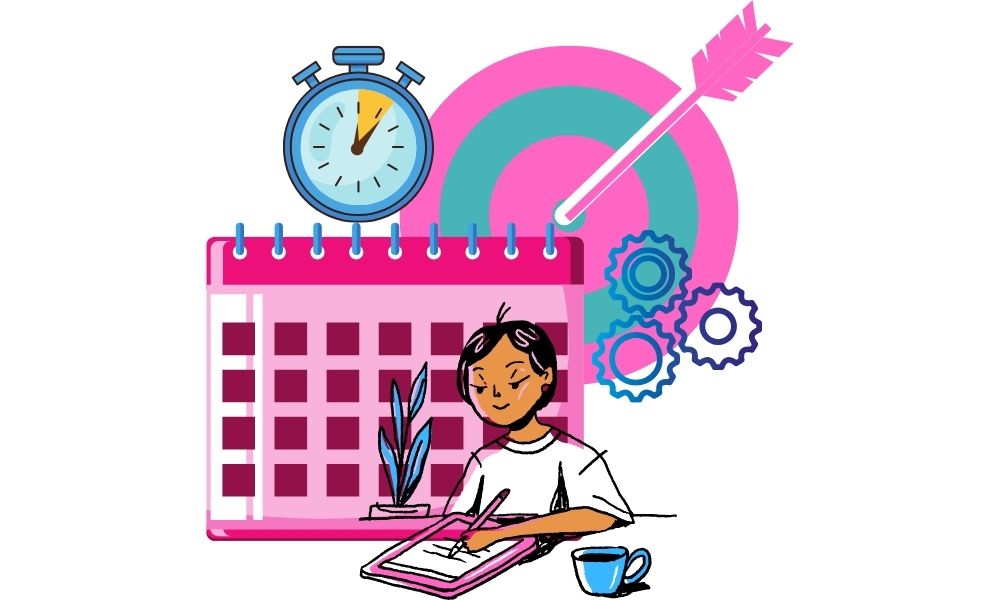In today’s fast-paced and highly competitive academic environment, students often find themselves juggling multiple responsibilities—exams, assignments, extracurricular activities, part-time jobs, and social obligations.
Time management for students is more than just creating a daily planner; it’s about setting clear priorities, staying organized, and making intentional decisions about how to spend time.
Mastering this skill in Boarding Schools in Dehradun not only improves academic performance but also enhances overall well-being and reduces stress.
Why Time Management for Students Matters

Efficient time management helps students:
Stay on top of academic deadlines
Reduce last-minute cramming and stress
Improve productivity and concentration
Create room for hobbies, self-care, and social life
Build lifelong skills valuable in future careers
By focusing on time management for students, learners develop discipline and a sense of control over their schedules, which ultimately leads to academic and personal success.
1. Set SMART Goals
The foundation of good time management lies in clear, achievable goals. Students should aim to set SMART goals:
Specific – Define what needs to be accomplished.
Measurable – Track progress.
Achievable – Stay realistic.
Relevant – Align with academic and personal priorities.
Time-bound – Set deadlines to stay motivated.
Setting these goals allows students to plan their tasks effectively and measure success.
2. Prioritize Tasks Using the Eisenhower Matrix

When tasks pile up, it’s important to understand what needs immediate attention. The Eisenhower Matrix helps categorize work into four segments:
Important and urgent – Do immediately
Important but not urgent – Schedule for later
Urgent but not important – Delegate if possible
Neither urgent nor important – Eliminate or minimize
This method enhances time management for students by ensuring they focus on what truly matters.
3. Create a Daily and Weekly Schedule
Students should develop the habit of scheduling their time:
Allocate study blocks for each subject.
Include breaks to avoid burnout.
Plan leisure activities and rest.
Using tools like planners, Google Calendar, or mobile apps like Todoist or Notion helps maintain consistency and structure. Effective time management for students begins with a well-organized routine.
4. Break Tasks into Manageable Chunks
Large tasks can be intimidating, often leading to procrastination. Instead:
Divide assignments into smaller sections.
Set mini-deadlines for each part.
Track completion to maintain momentum.
This approach makes the workload feel lighter and more achievable, improving both productivity and confidence.
5. Use the Pomodoro Technique

One of the most effective techniques for time management for students is the Pomodoro Technique:
Work for 25 minutes (one Pomodoro)
Take a 5-minute break
After four Pomodoros, take a longer 15–30-minute break
This method boosts concentration, maintains energy, and prevents mental fatigue.
6. Eliminate Distractions
In the digital age, distractions are everywhere—social media, notifications, and multitasking can derail even the best-laid plans. To combat this:
Turn off unnecessary notifications
Use apps like Forest or Focus@Will to stay on track
Create a dedicated, clutter-free study space
Time management for students improves significantly when distractions are minimized.
7. Learn to Say No

Overcommitting is a common issue among students. Whether it’s taking on extra responsibilities or attending every social event, saying yes to everything leaves little room for focused study time. It’s important to:
Set boundaries
Politely decline tasks that don’t align with priorities
Choose commitments wisely
Saying “no” is not a weakness; it’s a strategy for smarter time use.
8. Review and Reflect Weekly
At the end of each week, students should:
Review what tasks were completed
Reflect on what worked and what didn’t
Adjust plans for the coming week
This reflection reinforces the habits of effective time management for students and allows for continuous improvement.
9. Balance Study with Self-Care

Academic success should not come at the cost of personal well-being. Students must prioritize:
Regular sleep (7–8 hours)
Physical activity or relaxation (like yoga or walking)
Nutritious meals and hydration
Time with family and friends
Time management for students should include space for self-care, as a healthy mind and body are critical to sustained performance.
10. Leverage Digital Tools and Apps
Technology can be a powerful ally. Students can utilize:
Trello/Notion – For organizing projects and assignments
Evernote – For note-taking
Google Calendar – For scheduling
RescueTime – To analyze time-wasting habits
Smart use of these tools makes time management for students more efficient and trackable.
Conclusion
Mastering time management for students is not a one-time effort but a continuous process of planning, acting, and refining. With the right techniques—like goal setting, task prioritization, distraction control, and self-care—students can strike a perfect balance between academics and life.
When students manage their time well, they experience less stress, better grades, and more confidence. More importantly, they build essential life skills that extend beyond the classroom and into their future careers and personal growth.
By investing in time management for students, we empower the next generation to lead more purposeful, balanced, and successful lives.
FREQUENTLY ASKED QUESTIONS
Q1. What is time management for students and why is it important?









